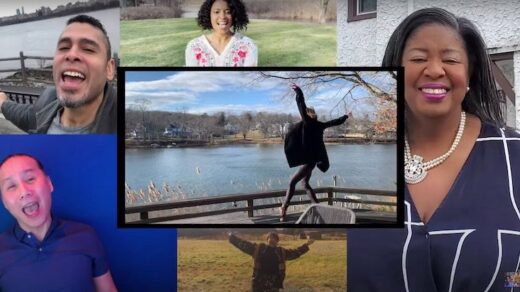The Battle to Protect LGBTQ+ Homeless Youth
In 1992, Colorado’s Amendment 2, which sought to legalize discrimination based on sexual orientation, passed with the slogan from the Christian right, “No Special Rights.” Nationally, an outcry slogan by opposers designated Colorado as the “Hate State.” By 1996, Amendment 2 made it to the United States Supreme Court, and it was struck down as unconstitutional. Fast forward to 2020 and the current administration recently is rolling back protections for transgender individuals seeking shelter in federally funded homeless shelters.
This is the legacy community centers like Inside Out Youth Services (IOYS) work against every day in Colorado. These are the systems and structures that inform and influence our housing shelters, our city government, our corrections, our leadership think-tanks convening to address risks youths are facing, our schools, our medical and mental health systems, our policing, and funding, and resource opportunities for nonprofits. The harm from this policy has lingered for decades.
While Colorado has solid anti-discrimination protections, several allies and ally organizations, and even a gay governor, Colorado Springs LGBTQ+ youth struggle against adult gatekeeping of services, mistreatment, and even violence in their churches, schools, corrections, mental hospitals, physical health offices, and homeless shelters. LGBTQ+ youth face the reality that while there may be laws to protect them, everyday practices of discrimination by those in power, or by those permitted to discriminate by those in power, assure their continued oppression.
To be sure, 70 percent of trans folks who stayed in a shelter in 2015 reported some form of mistreatment, including being harassed, sexually or physically assaulted, or kicked out because of being transgender. Compounding this reality is the fact that just over half of trans and nonbinary youth nationally report being kicked out of their homes or running away because of their trans identity.
This reality combined with the HUD memo that the Trump administration recently released to teach homeless shelter providers how to identify and discriminate against a trans woman exacerbates the everyday discriminatory practices and culture of unacceptance we’ve been fighting against.
To be clear, the recent HUD memo is bigger than shelters — it is aligned with the Trump administration’s weaponization of language by offering a path to distinguish trans people, detain trans people, and send trans people to facilities where they are far too often dehumanized, humiliated, assaulted or denied facilities altogether. It grants permission to respond to trans existence with violence. It’s normalizing othering within shelters by other residents, staff, or institutional violence by denying safe shelter and welcoming a possible death sentence in the streets.
This is not new news to the trans community or to the youths we support at Inside Out — especially for Black and Brown trans folks dealing with structural racism and violence in addition to transphobia.
Nationally, LGBTQ+ young people reported higher rates of trauma and adversity, including twice the rate of early death. A disproportionate number of those unhoused are Black and Brown LGBTQ+ youth, further compounding the trauma and violence they face due to racism.
In 2019 alone, one-third of all the young people we served at IOYS were experiencing homelessness, and 50 percent identified as trans or nonbinary. Several of these youths are living in camps and sleeping on the streets rather than seeking shelter, some say it’s because they feel safer on the streets than in our shelters. One of the young people who showed up unhoused was only 13 years old. Half of these youths’ struggle with suicidal ideation.
Fortunately, for our young people, the local youth shelter in Colorado Springs does a great job of being supportive and affirming. But this is not the case in all shelters, particularly the religious shelters that dominate many cities. And the nature of dormitory-style housing increases the likelihood that trans people will face harassment by other residents.
The truth on the ground is that the LGBTQ+ community all too often faces the reality that structural discrimination embedded in institutions far outlive the policies meant to end discrimination within them.
Amendment 2 is still active in Colorado Springs 30 years after the fact. It’s active in the conservative culture of the community, in everyday decisions people in power make, in the fact that while our anti-discrimination protections might guarantee trans girls’ access to a female bathroom and trans boys’ access to a male bathroom at school, it doesn’t guarantee they won’t be bullied or that their adults will hold bullies accountable — even though the law says they should. And it certainly doesn’t provide nonbinary students access to all-gender restrooms. The current administration’s efforts are a reminder that this is not specific to my community, town or state — it’s a national issue that must be addressed on a massive systemic scale.
This means the responsibility to lead local-level advocacy, provide crisis intervention, educate adults, prevent violence, support food access, provide LGBTQ+ competent mental health and family services, prevent suicide, and hold community institutions accountable lands on the shoulders of those of us organizing on the ground in our communities.
After all, when a young person shows up at our door, we are the adults they are trusting with their lives. We are the ones that navigate the systems with them, we make calls and meetings when they are discriminated against, we show up to demand accountability with them and hold space for them when we are unable to get it. Yes, even when the law promises.
This is why it is even more important now for our communities to support LGBTQ+ youth on a local level, support community centers and seek outlets to fight these oppressive and violent policies put forth by the Trump administration.
Bottom line is that the Trump administration memo is dangerous — it institutionalizes practices that we will be working to dismantle for decades while our youths suffer for it.
And yet, despite these hard truths, LGBTQ+ youth show up to their lives with bravery, resilience, and a beauty that seems impossible to cull during times like these. They show up ready to learn and fight alongside each other, and our community, for their liberation. They are our future. Their spirit and resilience make this world, and this work, more endurable during times like this.
Jessie Pocock is the Executive Director at Inside Out.
Original Article on The Advocate
Author: Jessie Pocock





